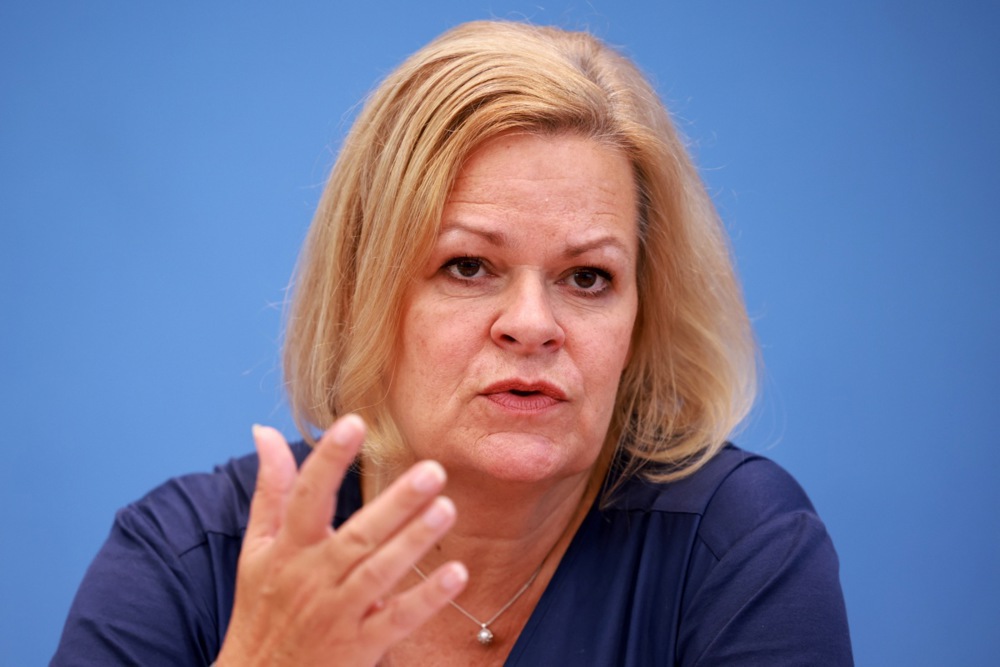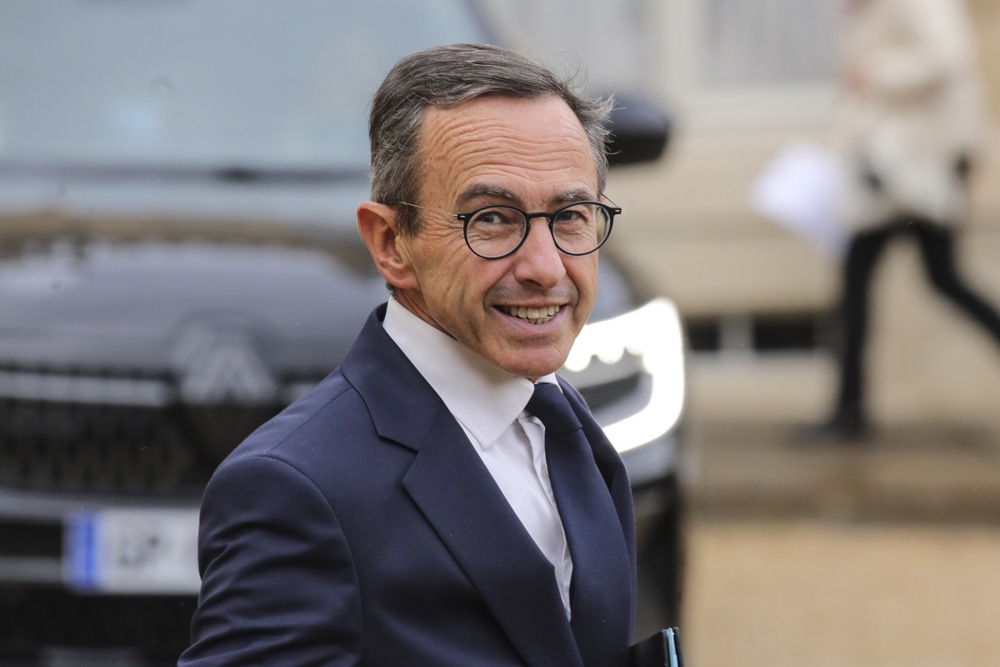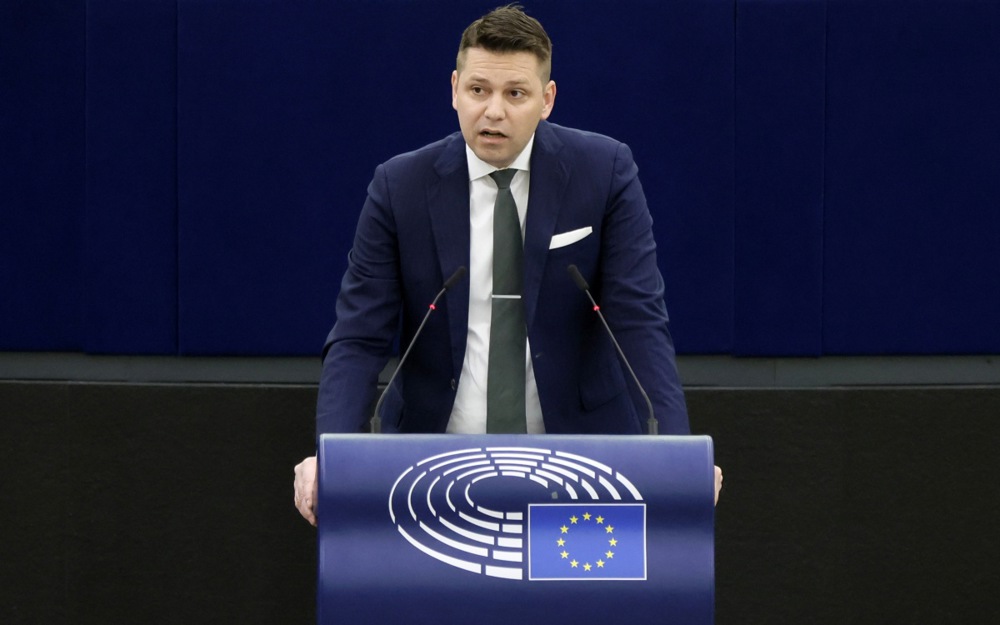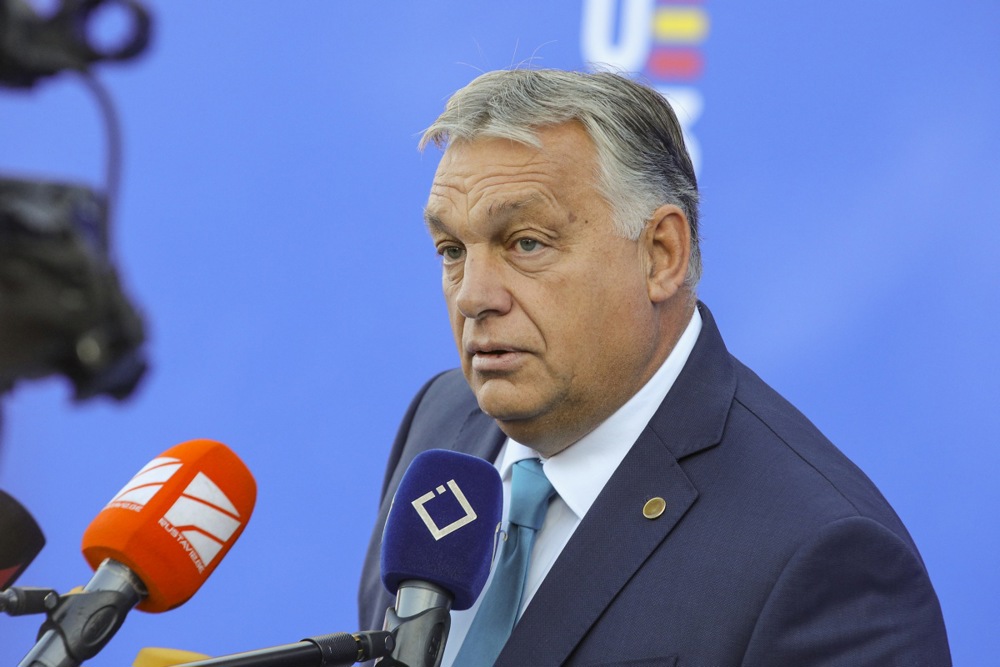Bruno Retailleau, the new French government’s interior minister, has said he wants a revision of the country’s constitution and a referendum on migration.
In the lead-up to the parliamentary elections in France, the hard-right National Rally (RN) strongly advocated for such a referendum.
Speaking to television station LCI on September 29, Retailleau seemed to adopt the RN proposal, suggesting the government shift in a big way to the Right regarding mass migration.
“Like millions of French people, I think that immigration is not an opportunity,” he said and added he wanted to mobilise “all means” to “reduce immigration in France” while admitting “there is no miracle solution.”
“The French have sent a clear signal in the elections, they want more security and less migration.”
Retailleau added it was currently constitutionally not possible to hold a referendum on the matter, something he said he deeply regretted and called for a change of the Constitution.
“Migration is a phenomenon that has turned French society upside down for the last 50 years, but the French people were never allowed to speak out over it,” he said.
Asked if his new government was at risk of getting too close to Marine Le Pen’s RN, Retailleau said the administration represented all French people and was not making distinctions between them.
“There are no first and second-class citizens,” he said and added that if 11 million people voted for something, they “need to be heard.”
Retailleau further said discussions regarding Schengen should also be on the table.
He argued that what he called the multicultural society was, in his eyes “conflictual” and potentially “multiracist.”
Additionally, the minister cautioned against what he termed the dangers of the “Anglo-Saxon multicultural model,” where communities existed side by side without integration, leading to potential “violent clashes”.
In contrast, he promoted the French Republican model, which he said emphasised transcending an individual’s origins and uniting around shared values.
Retailleau went on to defend France’s cultural heritage, describing it as “Judeo-Christian… made in Jerusalem, Athens and Rome.”
“It’s a unique civilisation, which is also European and the worst thing for me is to see this European guilty conscience when Europe is the symbol of freedom,” he said.
“How do you want to integrate young people who have doubts, telling them that France is not loveable, that it is guilty of all crimes?”
France is likely to see much tougher immigration and security measures to reflect a broad rightward shift in society, its new interior minister has said. https://t.co/KlwXNhmG14
— Brussels Signal (@brusselssignal) September 25, 2024
Migration has remained on top of the political agenda in France and received extra attention after the murder in early September of a French native, a 19-year-old girl named Philippine, allegedly by an illegal immigrant.
Regarding such incidents, Retailleau claimed that sometimes criminals were better protected than their victims — the “ordinary” French. He stressed there needed to be a debate about justice and the rule-of-law to address this.
Part of this equation, he added, is to send back foreign criminals to their home country.
Retailleau said he was ready to “use all levers” at his disposal and saw “no taboos” on the topic. He mentioned using visas, development aid and customs tariffs to weaponize the “balance of power” with countries in Africa and the Middle East to force them to take back their criminal countrymen.
He also said he wanted to see “reciprocity” regarding migration, where immigrants should respect the law and culture of France much more, he said, than they do currently.
Retailleau added he was in favour of systematically expelling convicted foreign criminals.
The interior minister said he would meet with his German counterpart Nancy Faeser, who is considering a model where migrants were processed abroad, similar to Italy’s Albania deal.
Portugal’s government will establish a new Public Security Police unit responsible for returning migrants in the country who have no right to stay. https://t.co/kKIyhNbzLc
— Brussels Signal (@brusselssignal) September 27, 2024
Going into detail on the issue, Retailleau told the interviewer that there were three major things to keep in mind regarding the issue of mass migration.
First, he said, was that there are already agreements in place that would enable the creation of “retention” measures at countries of migrant departures and transit, with Retailleau stressing that such agreements should be activated to this end.
Second, Retailleau pointed to the European level, highlighting that right-wing parties had won recent elections in June, contributing to an EU-wide shift toward stricter migration policies. He also noted that left-leaning governments, such as those in Denmark and Germany, already adopted more conservative stances on migration.
“Things aren’t like they were six months ago anymore,” Retailleau said. He referred to the Return Directive (Directive 2008/115/EC), which sets out common standards and procedures for the return of non-EU nationals staying illegally in European Union member states.
Retailleau argued that the directive needed a comprehensive overhaul to better address illegal migration in Europe. Currently, member states must demonstrate that they are making every effort to accommodate these individuals, but Retailleau advocated for reversing this approach, placing more responsibility on the migrants to justify their right to stay.
Finally, he also wants to change the rules within France to combat illegal migration. For one, he stressed, being illegally in the country is a crime and should be treated that way.
The interior minister called for the State to retake control over migration because otherwise, he said, “people smugglers are in charge.”





